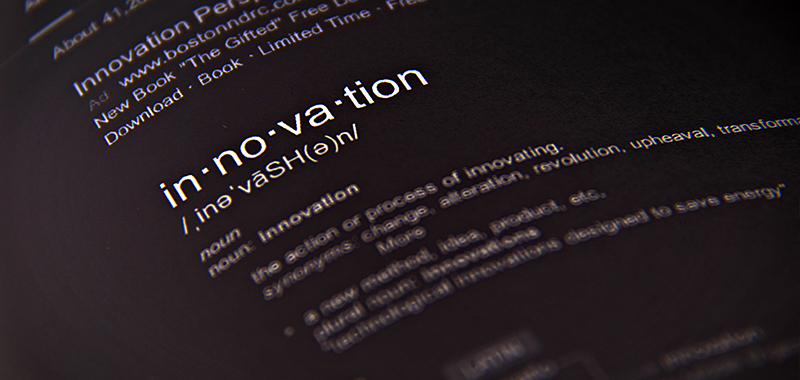
Who is meant to pay for all that?!
Overcoming typical arguments against LMS and convincing your stakeholders
The introduction of a learning management system (LMS) is a landmark decision with lasting effect on company processes. Its success hinges on those responsible for the launch taking due account of their stakeholders - and not underestimating them. Each department has unique interests, requirements and perspectives.
Failure to involve data protection officers, works councils or the HR department in the initial stages can, for example, result in avoidable delays and unnecessary conflict. This makes it crucial to integrate stakeholders into the project early on. We have compiled some expert tips and a checklist to help you on your way.
The real work only starts with the decision to implement a learning management system. After a long fight for a decision, those involved are often highly motivated and want to get started on the provider selection and realisation as soon as possible.
Unfortunately, this frequently means that they forget to involve key stakeholders within their organisation in due time. If responsibilities, requirements and potential risks are not discussed at an early stage, and other departments and employees are left out of the loop, problems are almost a given.

Florian Casper, imc Data Protection Officer, cautions against ignoring stakeholders: "It is extremely important to know your interest groups and involve them early on. Works councils, data protection officers and IT departments all bear a lot of responsibility in relation to the processing of personal data. That makes it even more upsetting for these functions if they are presented with a done deal.
We have experienced on numerous occasions that LMS implementation projects come to a halt, because these stakeholders were not informed about the planned procurement. Early and transparent involvement of these functions helps to avoid unnecessary internal conflicts, ensures smooth and straightforward project execution and also prevents high additional costs that would be incurred through project delays or abortions."
Elisabeth Schulze Jaegle equally emphasises the importance of getting stakeholders on board from the outset. The independent expert for digital learning and agile learning designs often acts as a mediator between different interest groups and recommends early talks.
Especially in relation to the works council, she advises: "Successful LMS implementation for the long term can only be achieved in close and fair cooperation with co-determination parties, i.e. the works council. Especially in relation to the processing of personal data, the works council has a great say. It should be actively involved from the beginning, and can also be a strong partner for personnel development."

Clarifying the following questions in advance will help you prevent unnecessary conflict and delays:
- Who are my stakeholders?
- What potential concerns might arise in the implementation of the LMS?
- What are the counter-arguments?
- Who should be informed when?
Typical argument
LMS involves costs, but does not generate profit. A good LMS helps users work notably more efficient and promote talents. This drives progression for the organisation. Costs are lowered in the long term.
Response
The outcome for the organisation is also determined through learning analytics. That means learning happens not just for the sake of learning, but in line with KPIs.
Timing and manner of information
The management team or investor makes the decision. It must approve the project and costs. You should therefore provide information on planned steps and realised milestones.
Tip: Create a business plan early on, and list effects for the organisation – ideally with clear KPIs (financial and efficiency indicators) rather than relying on soft factors.
Typical argument
1. Resources for the management of such a system are not available.
2. Employees (especially older ones) will not accept the system.
Response
1. Training already takes place today => There are no additional costs. On the contrary: An LMS facilitates decentralised organisation, as opposed to central administration involving individuals.
2. A good LMS can be adapted to the requirements of different user groups. Simple and intuitive operation also motivates older employees.
Timing and manner of information
The HR department is a central contact and should already be consulted when choosing the provider to clarify which data and interfaces are required.
Especially for internal HR and personnel development processes, the HR department should be involved at an early stage.
The system owner question should be given due consideration => It is often assumed that the HR department is the system owner per se. However, a dedicated L&D department is established in most professionalised organisations, which assumes responsibility for HR development.
Typical argument
1. Employees are constantly monitored and controlled.
2. Employees are not given enough time for digital learning.
Response
1. A professional LMS compliant with European data protection regulations facilitates customised configuration as required in works agreements. This allows the works council to define the data to be generated together with the internal project participants and the provider. The works council can also be involved in any communication including the releases.
2. A well-designed LMS concept saves employees unnecessary training courses, and develops them in line with their personal goals.
Timing and manner of information
The works council should be informed during the selection process for the provider in order to define the catalogue of requirements together with other stakeholders.
A workshop (ideally not linked to a specific provider) with an expert who can explain terminology and present the opportunities of e-learning in general and/or specifically in an LMS is recommended.
Remember: The works council has a legal right to stop the entire project!
Typical argument
Available human resources do not stretch to implementation, maintenance and support requests.
Response
A good LMS has standardised interfaces that facilitate easy integration into the existing IT infrastructure. A professional service provider offers ongoing support. Intuitive operation prevents excessive support requests.
Cloud-based systems also simplify project design and minimise the use of IT resources.
Timing and manner of information
The IT department should be consulted during the provider presentation and before the interfaces are defined. Also check, whether fundamental IT guidelines (security, cloud, etc.) exist which must be furnished to the provider in the selection process.
Subsequent support must also be clarified with IT (e.g. Who handles 1st level support?)
Typical argument
Sensitive employee data is collected. An LMS is not secure enough.
Response
A well-designed authorisation concept prevents data getting into the wrong hands. A serious cloud provider will guarantee compliance with data protection provisions. If an on-premise solution were selected, data would always remain within the organisation.
Timing and manner of information
The data protection officer has an advisory and supporting role. They should be consulted before the contract is awarded to review the processing of personal data from a holistic perspective, and be given the opportunity to voice any concerns.
They can also help to select a suitable operating model, and prepare the documents needed for data protection issues or requirements together with IT Security and the provider.
Typical argument
I get lost in the system if left to my own devices. I don’t have time for e-learning.
Response
User-friendly design ensures intuitive operation. Micro-learning nuggets available on mobile devices facilitate learning on the job – during regular working hours.
Timing and manner of information
This group is often left out, even though employees are the very people for whom the LMS is introduced. That is why you should inform your employees about the planned implementation and keep them in the loop.
Many concerns and uncertainties can be avoided through targeted communication and training in advance.
Above all, Elisabeth Schulze Jaegle recommends looking at each stakeholder - especially the works council - as a partner and promoter of learning culture and learning offers, rather than a stumbling block and time waster.
We all know: If key interest groups within an organisation are in favour of a project, this has a crucial impact on acceptance levels in general. Thus, open and early communication is the foundation for successful LMS implementation.

Courage to the LMS - even as SME!
Not only big companies should have the courage to go for a Learning Management System. In our interview Christian Mai from S&G Mercedes Benz, tells about his experiences with rolling out an LMS in a Small and Medium Enterprise (SME).

The big e-learning glossary
WBT, SCORM, Predictive Analytics, Blended Learning - uh, what? The first two articles in this series are a glossary for those who have felt lost in the e-learning jungle of abbreviations and technical terms.

More information about the LMS
If you would like to find our more about the Learning Management System of imc, please find all information here.